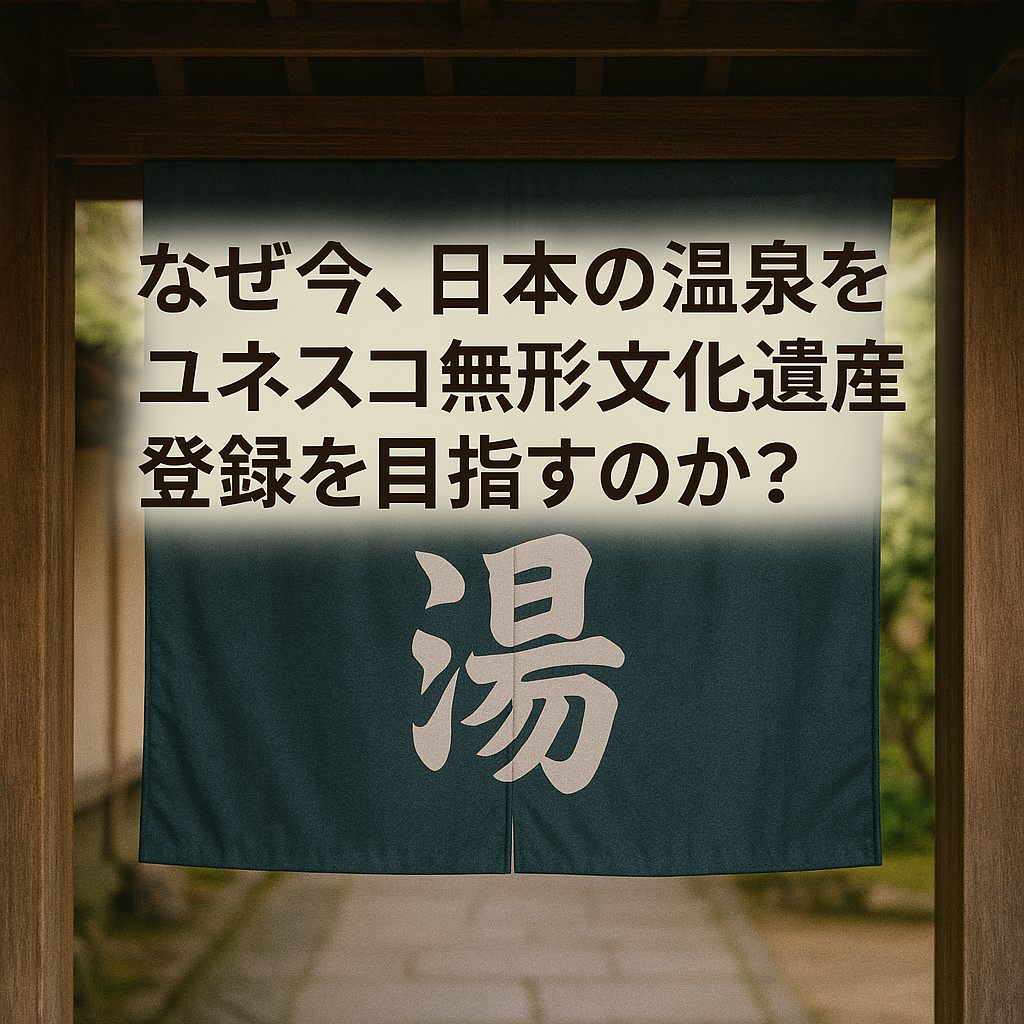♨️ なぜ今、日本の温泉をユネスコ無形文化遺産登録を目指すのか?
日本は、世界でも類を見ないほど豊かな温泉資源を持つ「温泉大国」です。しかし、温泉は単なる観光資源ではなく、古来より人々の生活、健康、精神文化と深く結びついてきた貴重な「文化遺産」でもあります。今、ユネスコ無形文化遺産登録を目指すべき理由を考えてみましょう。
1. 日本独自の文化としての価値を守るため
温泉には湯治文化や独特な入浴作法、地域ごとの伝統など、日本ならではの要素が多く含まれています。これらは時代とともに消えゆくリスクがあり、無形文化遺産登録により保護・継承の仕組みを確立することが急務です。
2. 世界に向けた文化発信の強化
無形文化遺産に登録されることで、温泉が持つ「癒し」や「調和」の精神が世界中に認知されます。観光誘致だけでなく、日本の文化理解を深め、国際的なブランド力の向上にもつながります。
3. 地域経済と観光の持続的発展
温泉地は多くの場合、地方に位置しており、地域経済の柱となっています。ユネスコ登録による注目度向上は、地域活性化や若者のUターン促進、地元産業の発展など多面的なメリットがあります。
4. 自然と共生する知恵の伝承
温泉文化は「自然との共生」を象徴する存在です。源泉の保護、資源の持続可能な利用、自然景観との調和といった考え方は、世界が求めるサステナビリティの理念とも一致します。
✅ まとめ
今、温泉をユネスコ無形文化遺産として世界に発信することは、未来へ文化をつなぐだけでなく、日本という国の精神性や価値観を世界と共有する大きな一歩です。
温泉が「癒しの象徴」から「世界共有の宝」へ進化する時が来ています。
♨️ Why Aim to Register Japanese Onsen as UNESCO Intangible Cultural Heritage Now?
Japan is home to some of the world’s richest hot spring resources and has long been known as a “hot spring paradise.” But beyond their therapeutic qualities, onsen represent a deep cultural heritage tied to Japan’s history, lifestyle, and spirit. Here’s why now is the perfect time to aim for UNESCO Intangible Cultural Heritage recognition.
1. To Protect Japan’s Unique Cultural Value
Onsen culture includes traditional therapeutic practices (toji), unique bathing etiquette, and local customs that differ from region to region. These traditions are at risk of fading over time. UNESCO registration would help establish systems for preservation and ensure they are passed down to future generations.
2. To Strengthen Global Cultural Outreach
Being recognized as an intangible cultural heritage would highlight the values of “healing” and “harmony” embodied in onsen, elevating global understanding of Japanese culture. This recognition would not only boost tourism but also enhance Japan’s overall cultural brand worldwide.
3. To Support Regional Economies and Sustainable Tourism
Most onsen resorts are in rural areas and play a vital role in local economies. Gaining UNESCO status would increase international attention, revitalizing local industries, encouraging young people to return to their hometowns, and promoting long-term regional development.
4. To Pass Down Wisdom of Coexisting with Nature
Onsen culture symbolizes Japan’s philosophy of living in harmony with nature. Protecting hot spring sources, using resources sustainably, and maintaining harmony with natural landscapes all align with global sustainability goals, making onsen culture more meaningful than ever.
✅ Conclusion
Registering Japanese onsen as UNESCO Intangible Cultural Heritage is not only about protecting a tradition—it is a major step toward sharing Japan’s spirit and values with the world.
The time has come for onsen to evolve from a symbol of healing to a global cultural treasure shared with future generations.

